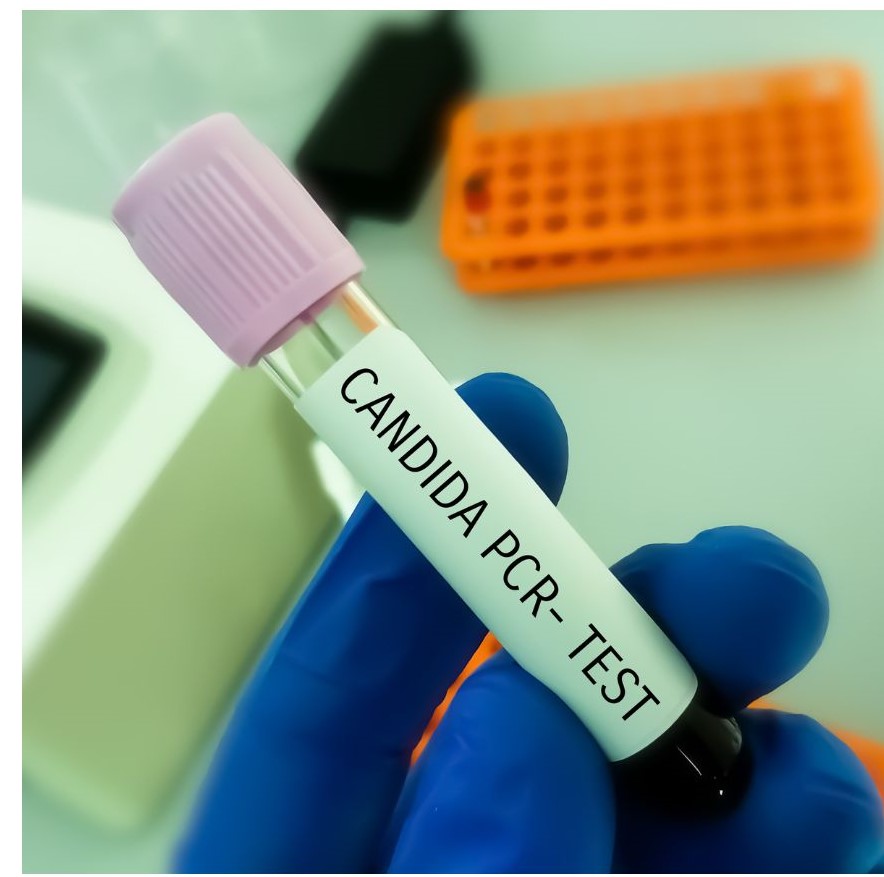Candida Overgrowth Creates Vicious Cycle of Insulin Resistance & PCOS Symptoms
Imagine a silent battle occurring within your body, where an overgrowth of Candida may be secretly undermining your health, particularly for women grappling PCOS.
While insulin resistance has long been identified as a key player in metabolic disorders, emerging research suggests that the presence of Candida could significantly complicate this relationship. What if the imbalance of this common fungal overgrowth is not just a nuisance, but a hidden driver exacerbating insulin resistance and contributing to the symptoms of PCOS?
Understanding this intricate connection could unveil new pathways for effective treatment and transform the way we manage PCOS and other metabolic issues.
Go in-depth to manage PCOS symptoms naturally with an individualized plan—Browse upcoming workshops.
Understanding Candida Overgrowth
Candida is a type of yeast that naturally resides in our bodies. When in balance, it coexists without causing harm. However, various factors such as diet, antibiotics, and a weakened immune system can disrupt this balance, leading to overgrowth.
Symptoms of Candida overgrowth can include persistent fatigue, digestive issues, recurrent yeast or skin infections, and brain fog.
Common triggers of Candida overgrowth often involve lifestyle choices and environmental conditions. A diet high in sugar and refined carbohydrates can fuel Candida growth, as yeast thrives on sugar. Antibiotic use can also tip the balance by killing beneficial bacteria that usually keep Candida in check. Stress and hormonal imbalances can weaken the immune system, making it easier for Candida to proliferate.
Symptoms of Candida Overgrowth
A yeast overgrowth can cause a myriad of symptoms, many of which mimic PCOS symptoms. These include (1):

- Persistent fatigue and brain fog
- Insomnia or difficulty sleeping
- Digestive issues such as bloating, gas, and constipation
- Recurrent yeast or urinary tract infections
- Skin issues like acne, eczema, or psoriasis
- Joint, muscle pain
- Food sensitivities
- Sugar cravings
- Mood swings and irritability
- White coating on your tongue or inside your mouth
Research suggests that Candida overgrowth in the gut can also lead to inflammation and a leaky gut (2). This can then lead to a cascade of other symptoms that aren’t specific to Candida overgrowth.
Watch: How to Get Rid of Candida for Good
Candida Overgrowth Drives Insulin Resistance
Insulin resistance is a condition where the body’s cells become less responsive to insulin, a hormone crucial for regulating blood sugar levels and metabolism. It appears that the presence of Candida in the gastrointestinal tract influences insulin secretion and resistance, exacerbating metabolic health issues like PCOS (3).
For instance, a study found that Candida in stool significantly increased insulin secretion compared to those without Candida (4). This overproduction of insulin can lead to insulin resistance over time. Additionally, individuals with higher body mass indexes (BMIs) exhibited increased levels of Candida, suggesting a link between Candida overgrowth and obesity.
The implications of this connection are profound. Insulin resistance is a precursor to type 2 diabetes and is often associated with weight gain and difficulty losing weight. Understanding the role Candida—and also the microbiome as a whole—plays in metabolism & hormonal wellness can open new avenues for treatment and management, potentially improving outcomes for those struggling with both of these complex conditions.
Related: Losing Weight in the Age of Ozempic: Balance Blood Sugar to Drop Pounds
Candida Overgrowth, Insulin Resistance, and PCOS
Now, if you have PCOS, it’s likely you’re familiar with the concept of insulin resistance. Insulin resistance is a common feature of PCOS, and evidence suggests Candida overgrowth may exacerbate this aspect of PCOS via its effect on insulin.

PCOS and Candida overgrowth often coexist, creating a vicious cycle that can be challenging to break.
- Insulin resistance can worsen PCOS symptoms by increasing androgen production, leading to more severe hormonal imbalances.
- Meanwhile, Candida overgrowth can influence insulin secretion, further complicating the management of both.
- And lastly, higher than average glucose circulating in the body as a result of insulin resistance creates the exact environment that Candida thrives in.
Women with PCOS may find themselves battling unexplained weight gain, persistent fatigue, and other symptoms that overlap with those of Candida overgrowth and insulin resistance. Recognizing this triad of conditions allows for a more holistic approach to treatment, addressing the root causes rather than just masking the symptoms.
PCOS & Yeast Infections
Many women who have PCOS also experience frequent yeast infections. This is due to the hormonal imbalances and weakened immune system associated with PCOS, which can create an environment conducive to Candida overgrowth. Additionally, the use of certain medications, such as birth control pills and antibiotics, can also increase the risk of yeast infections.
For many women with PCOS, recurrent yeast infections are the beacon that leads them down the path to identifying a Candida overgrowth issue. Unfortunately, some doctors will tell patients they’re unrelated, but in my experience—it’s usually a major red flag that Candida needs addressing!
Managing Candida Overgrowth & Insulin Resistance

For those struggling with PCOS and Candida overgrowth, there are steps that can be taken to manage both conditions simultaneously, but it requires a multifaceted approach.
Candida overgrowth
- Identifying Candida overgrowth can be done via stool or throat swabs. A gut function & microbiome analysis may also be helpful. Some practitioners may recommend a blood test to identify the presence of Candida antibodies.
- Treatment may include antifungal medications or supplements followed by probiotics to restore the balance of good bacteria.
- Reducing sugar and refined carbohydrate intake can help starve the yeast.
Insulin resistance
- Insulin resistance can be diagnosed through glucose tolerance tests and fasting insulin levels.
- Treatment almost always includes lifestyle changes such as a blood-sugar balancing diet and regular exercise.
- Supplements like berberine may help improve the body’s response to insulin, or your doctor may prescribe a medication like metformin.
PCOS management focuses on supporting healthy hormones and reducing androgen levels. Lifestyle modifications, including weight management and stress reduction, play a crucial role in managing PCOS symptoms.
For this reason, working with a holistic practitioner who has experience treating Candida overgrowth and PCOS can be beneficial in creating an individualized treatment plan.
Key Takeaways
The interconnectedness of Candida overgrowth, insulin resistance, and PCOS highlights the importance of a comprehensive approach to women’s health. By understanding these conditions and their relationship, you can take proactive steps to manage your symptoms and improve overall well-being.
Remember, you are not alone in this journey. Many women face similar health challenges and have successfully managed their symptoms through informed choices and a supportive network. Celebrate your progress, no matter how small, and continue moving forward with confidence.
